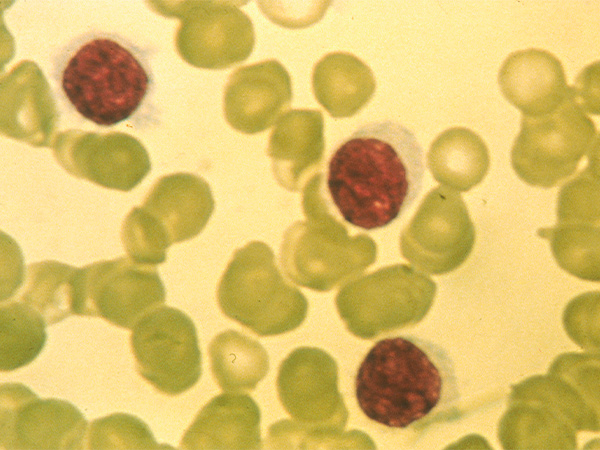A New Type of Targeted Therapy for Leukemia
The FDA has approved the first of a new type of molecularly targeted therapy for use in treating certain patients with a rare type of leukemia.

The U.S. Food and Drug Administration (FDA) recently approved a new molecularly targeted therapeutic called moxetumomab pasudotox-tdfk (Lumoxiti) for treating certain patients with a rare form of leukemia called hairy cell leukemia.
Moxetumomab pasudotox-tdfk is intended for patients with hairy cell leukemia who need a new treatment after having tried two previous treatments, including cladribine or another cytotoxic chemotherapeutic that works in the same way.
Hairy cell leukemia is a rare type of cancer; researchers reported that there are about 1,000 new cases diagnosed each year in the United States. Many patients are treated with the cytotoxic chemotherapeutic cladribine. This often leads to durable remission, which can last 10 years or more. However, up to 50 percent of patients eventually relapse and new approaches to treating these patients are urgently needed.
Because hairy cell leukemia arises in immune cells called B cells, researchers have been investigating whether targeting proteins found on B cells might provide a good treatment strategy. One B cell protein that is found on hairy cell leukemia cells is CD22.
Moxetumomab pasudotox-tdfk targets CD22. The new molecularly targeted therapeutic comprises a CD22-targeting portion fused to a bacterial toxin that causes cell death. Once the CD22-targeting portion of the therapeutic attaches to CD22 on the surface of a hairy cell leukemia cell, the entire therapeutic is internalized, or taken up, by the cell. Once inside the cell, the toxin is released from the rest of the therapeutic and it kills the leukemia cell.
According to the FDA, the approval of moxetumomab pasudotox-tdfk was based on results from the 1053 phase III clinical trial, which were published recently in Leukemia. These results showed that 30 percent of the 80 patients who received moxetumomab pasudotox-tdfk had a durable complete response, which was defined as maintenance of good blood cell counts for more than 180 days after tests showed no detectable leukemia cells in the bone marrow. Overall, 75 percent of the patients had a partial or complete response.
The FDA approval was rendered on Sept. 13, 2018.
